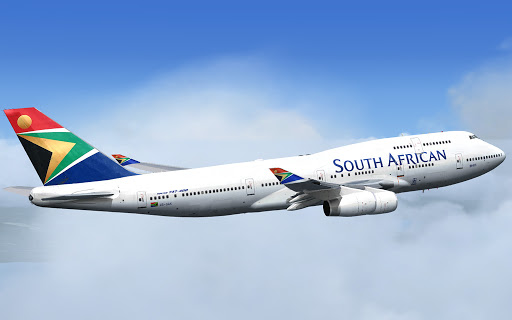After nearly six months of lockdown from the rest of the world, South Africa is reopening its borders for tourism on October 1 — but travelers coming from the U.S. won’t be welcome at this time.
“We are ready to open our doors again to the world,” South African President, Cyril Ramaphosa said in a statement announcing the decision last month, “and invite travellers to enjoy our mountains, our beaches, our vibrant cities, and our wildlife game parks in safety and confidence.”
The country closed its borders to foreign travellers in late March in response to the coronavirus pandemic.
South Africa has been one of the world’s hardest-hit countries. But after extensive efforts to flatten the infection curve, the country says it is now ready to begin welcoming back tourists.
Pre-pandemic South Africa hosted 17 million visitors a year. Notably, however, travellers coming from the U.S. and the U.K., among others, won’t be invited to visit quite yet.
Can you Visit South Africa right now?
President Ramaphosa is allowing travelers from a select number of low-risk countries to visit South Africa during this initial phase of reopening as of October 1. At this time, U.S. travelers aren’t permitted to visit.
What other countries or territories are included on South Africa’s high-risk list?
In total, there are 60:
Albania, Argentina, Armenia, Austria, Bahrain, Belgium, Bolivia, Bosnia and Herzegovina, Brazil, Chile, Columbia, Costa Rica, Croatia, Czech Republic, Denmark, Ecuador, France, Georgia, Greece, Guatemala, Guyana, Honduras, Hungary, Iceland, India, Iran, Iraq, Ireland.
Others are Israel, Jamaica, Jordan, Kuwait, Lebanon, Luxembourg, Maldives, Malta, Mexico, Moldova, Montenegro, Nepal, Netherlands, North Macedonia, Oman, Palestine, Panama, Paraguay, Peru, Portugal, Puerto Rico, Qatar, Romania, Russia, Slovakia, Suriname, Switzerland, Ukraine, United Arab Emirates, United Kingdom, United States and Venezuela.
Leisure travelers coming from countries or territories not included on the high-risk list will be allowed to enter South Africa. However, there will be exceptions for those with certain visas, diplomats, sports people and investors coming from high-risk countries.
The country’s government will use its own level of risk to determine which countries it includes on its high-risk list, and it will review the list every two weeks.
Interestingly, the government said that “if the passport of the traveller from a high-risk country indicates that he/she has spent 10 days or more in a low-risk country before departure, he/she will be considered to be arriving from a low-risk country.”
In other words, you can travel to a low-risk country, spend 10 days there and then be allowed to enter South Africa as a tourist.
Unfortunately, the South African government hasn’t published a list of low-risk countries, only saying that included countries are those with lower infection rates and death rates than South Africa.
Before departure
For travelers who are permitted to enter, they must be able to show proof of a COVID-19 PCR test, with negative results dated within 72 hours of departure time.
Entering arrivals who present a negative PCR test won’t need to quarantine after passing health screenings, including temperature checks, at the arrival airport. But any traveler who either fails to present a timely PCR test or shows additional symptoms upon arrival will be asked to quarantine for 14 days at their own expense.
Travelers must also download the South Africa coronavirus mobile tracing app for the duration of their stay in South Africa.
Upon arrival
Foreign travelers permitted to enter the country and arriving in Johannesburg, Cape Town and Durban must adhere to the following guidelines:
Face masks are required in all public spaces;
A curfew is in effect each night from 12 a.m. midnight until 4 a.m. beginning Sunday, Sept. 20;
Most gathering will be allowed at 50 percent of the venue’s capacity, with 250 people allowed at a maximum indoors, or 500 people maximum at outdoor venues;
Individuals may purchase alcohol for personal consumption between 9 a.m. to 5 p.m., Monday through Friday;
Beaches, wildlife game parks and other outdoors tourist attractions will be open; and
While hotels, restaurants, and other tourism-based businesses will be open, there may be individual restrictions on capacity and hours, and social distancing guidelines will remain in effect.
Latest Stories
-
Televising re-collation will boost public confidence in election results – Barker-Vormawor
30 minutes -
Re-collation: EC announces NPP’s Patrick Boakye Yiadom as winner of Obuasi East seat
32 minutes -
What happened at Tesano collation centre was a disgrace to democracy – Frank Davies
1 hour -
Heavy security at EC G/A Regional office ahead of re-collation
2 hours -
Livestream: Newsfile probes ORAL, re-collation & transition blues
3 hours -
Ghana-Russia Centre supports pupils of Pakro-Zongo basic school
4 hours -
Ghana launches Malaria Youth Corps, leveraging youth power in fighting malaria
5 hours -
Book Review – All’s Well (Feehi): Living a Life Guided by Grace by Abednego Okoe Feehi Amartey and Theodora Dame Adjin-Tettey
6 hours -
French for health: A new initiative by French Embassy in Ghana
12 hours -
Ghana slowly retracing steps back to path of macroeconomic stability – Deloitte
12 hours -
Ghana’s debt service-to-revenue ratio reached all-time high of 127% in 2020, highest in SSA – IMF
12 hours -
Ghana’s consolidation efforts under IMF progamme to continue to be based on revenue
13 hours -
GPL 2024/25: Hearts beat 3-1 Chelsea to return to winning ways
14 hours -
Ghana set to host second Flag All-Star Game in Accra
14 hours -
Angor CREMA: Empowering Ghana’s coastal communities for sustainable growth
15 hours

